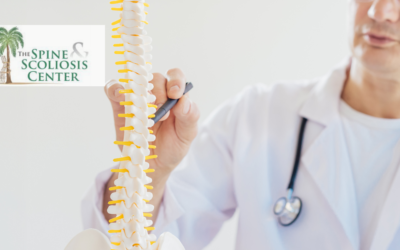Sciatica refers to pain caused by the irritation of the sciatic nerve. The sciatic nerve is the longest and widest nerve in your body, running from the lower back, through the buttocks and legs, and down below the knee. Anything that stresses the sciatic nerve can result in pain, ranging from mild to severe. The most common cause of sciatica is a compressed nerve in the lower spine.
The sciatic nerve controls several muscles in the lower legs, and is also responsible for supplying sensation to the majority of the lower leg and the skin of the foot. Sciatica refers to the general symptom of another problem affecting the sciatic nerve. Experts predict that up to 40 percent of people may experience sciatica at some point in their life.
What To Know About Sciatica:
- The most common cause of sciatica is a slipped (herniated) disk
- The longest nerve in the human body is the sciatic nerve
- Sciatica is NOT a condition on its own, but rather a symptom of another problem
- Cognitive behavioral therapy can help some people deal with pain caused by sciatica.
The prominent symptom of sciatica is a shooting pain along the sciatic nerve, radiating from anywhere along the lower back, down the back of either leg, or through the buttock. Some other common signs of sciatica include:
- A tingling sensation (pins and needles) in the toes and feet region
- Numbness along the nerve in the leg(s)
Such pain can vary greatly and may be exacerbated by sitting for extended periods of time.
Treatments For Sciatica
There are different treatment methods depending on if you have acute or chronic sciatica.
Treating Acute Sciatica
Acute sciatica can generally be managed by self-care measures, such as:
- Exercises such as walking or light stretching
- Over-the-counter painkillers like ibuprofen
- Hot or cold compression packs to reduce pain.
You should always consult with your doctor before taking painkillers, especially ones you haven’t tried before.
Chronic Sciatica Treatments
Chronic sciatica is typically treated through a combination of medical treatment and self-care measures including:
- Cognitive behavioral therapy (CBT) to give patients methods to help manage chronic pain
- Physical therapy
- Painkillers
If symptoms haven’t responded to other treatments and keep intensifying, your medical provider may recommend surgery as a last resort. Surgical options include:
- Discectomy- partial or entire removal of a herniated disk
- Lumbar laminectomy- widening the spinal cord in a certain area to reduce pressure on the nerve
Causes
Several different medical conditions may result in sciatica, but around 90% of cases are the result of a herniated disk. The spinal column is made up of vertebrae (individual bones composing the structure of the spine that protects underlying nerves), nerves, and cartilaginous disks that act as cushioning between each vertebra. When a disk is pushed out of place it is known as a “herniated disk,” and puts pressure on the sciatic nerve, causing pain. Sciatica may also be caused by:
- Tumors within the spine
- Spondylolisthesis
- Lumbar spinal stenosis
- Infection
- Cauda equina syndrome
- Other causes such as a spinal injury
Contact Us Today
Sciatica is a common condition that can be extremely painful. If you struggle with sciatica, call The Spine and Scoliosis Center to speak with a top spine specialist today.




0 Comments